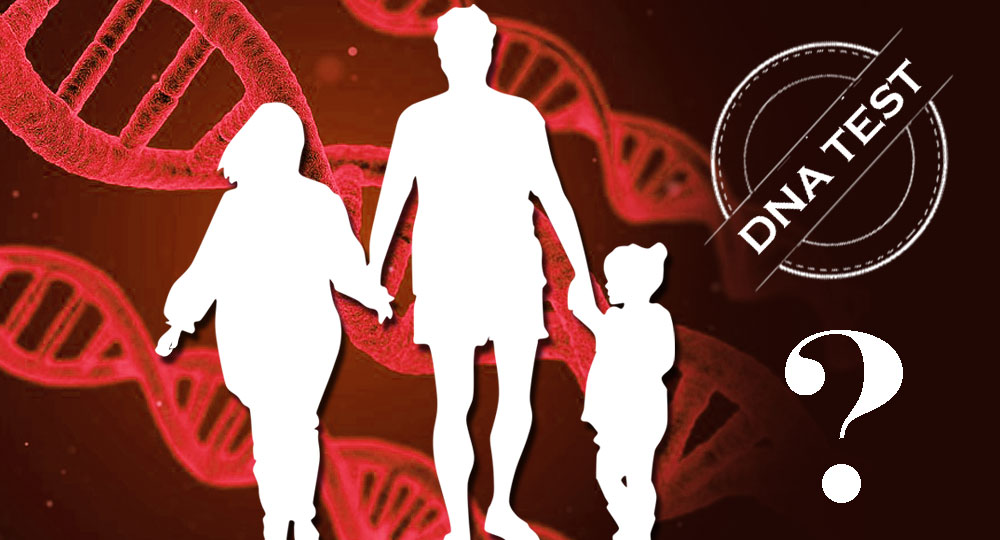
PATERNITY, MATERNITY, SIBLINGSHIP and RELATIONSHIP TESTS
All our biological information is encoded as two strands in a structure called DNA. One of these strands comes from the mother and the other strand comes from the father. Hence, our DNA includes genes that come from both of our parents. With the identification of these genes, DNA identity tests for each person is possible. DNA identity tests are now not only used in forensic but also in other fields. The identification of a child’s biological mother, father, or sister/brother is financially and morally very important for the parents and the child. This information also helps in many fields such as self-improvement and diagnosis and treatment of a certain genetic disease.
Paternity Test
In paternity test, genetic areas (allels) that are common in father and the child is analyzed. If the analyzed genetic areas are identical in both the alleged father and the child, the alleged father is the biological (real) father of the child. If the analyzed genetic areas from alleged father and the child do not match, the alleged father is not biological father of the child. Recently to increase the reliability of the test ,allels at least 20 common genetic areas (allel size) are being analyzed where the probability and the reliability are 99,99 %.
Maternity Test
If there is a doubt about a mother being the biological mother of a child, then maternity test is required. This test is applied when;
- An adopted child comes together with his/her biological mother many years later and the biological relationship between them is wanted to be confirmed
- In in-vitro fertilization, the mother wants to confirm the eligibility of the embryo
- A family member or a hospital staff suspects that nurses has mixed up the baby
Siblingship Test
If two individuals doubt that they are siblings, full-siblingship or half-siblingship test is required. Siblingship test do not require the parents; samples from the candidate individuals are enough. However, if further confirmation of Siblingship is desired, samples can be drawn from the parents also.
Aunt / Uncle Test
An aunt-uncle DNA test is used to determine ‘’the alleged father’’’s biological sisters / brothers with comparing their DNA. When paternity needs to be established but it is not possible to get sample form the alleged father by getting samples from alleged father’s genetic brothers or sisters biological match can be done for tested child.
Grandparentage Test
Grandparentage DNA testing is a type of relationship test carried out between grandmother, grandfather and grandchild to confirm whether the grandparents tested are the biological grandparents of their grandchild. This type of DNA analysis is also used instead of paternity test, where the alleged father is not available for testing.
Y Chromosome Testing
A Y chromosome test (Y-STR test) is used to determine if selected males SHARE the same paternal lineage. The Y chromosome only finds in males and passed down from father to son and from one generation to the next and the test can be done if male cousins want to check if their fathers were brothers or to find out if they shared a common Grandfather through the paternal line.
mtDNA Test
Mitochondrial DNA passed only from females to their male and female children, so that mtDNA testing is used to determine whether two or more people share a common maternal lineage
Procedure of Testing
Written Consent: For paternity test, the identity cards of the alleged father and the child are required. The alleged father must sign the ''written consent form'' that is required for the genetic testing.
Sample Collection: Usually; hair, nail, blood, and saliva samples are analyzed for identity tests. With the recent developments in technology, saliva (mucosa) is generally used as sample for relationship tests. In our center, sample collection is painlessly made with special cotton swabs. Inner cheek mucosal samples are collected both from the candidate father and the child.
Reliability: 20 markers (allelic regions) in total from the common genetic areas are analyzed with two independent test procedure and the results are 99,99% reliable.
Duration of the Test: Results are reported in 10-15 days.
Presentation of the Test Results: Due to confidentiality reasons, test results are presented only to the candidate which the sample has been taken and the results are presented in original reports with signing a protocol. No information is shared with anyone else in any way of communication.
For more information, please contact us.
